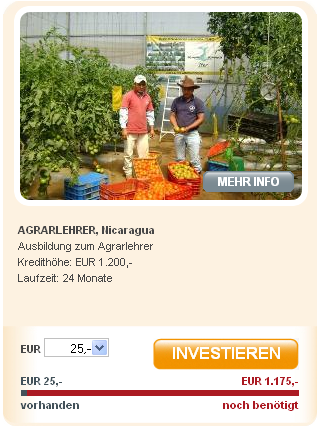![]() London based Funding Circle has announced that it has raised 1.1 million US$ form undisclosed private investors and will launch it’s p2c lending service Fundingcircle.com in Q2 2010.
London based Funding Circle has announced that it has raised 1.1 million US$ form undisclosed private investors and will launch it’s p2c lending service Fundingcircle.com in Q2 2010.
Director and co-founder James Meekings informed P2P-Banking.com:
When the platform launches later this year, people will lend small amounts to a range of different, creditworthy businesses to spread their risk. In turn, those businesses will be borrowing from a multitude of people to get a lower interest rate. … Funding Circle will also empower people to support their local community, by allowing lenders to target businesses with characteristics, such as locale, that are valued by them.
Small businesses will initially be able to apply for unsecured loans of 5,000 to 50,000 GBP. The businesses are checked for fraud and must meet a number of minimum credit requirements verified by the UK’s leading credit agency. Experienced underwriters then further analyse and screen businesses before allowing them onto the Funding Circle platform.

 Karl Rabeder was a successful entrepreneur and rich. But being a millionaire did not make him happy and he was seeking a purpose in life. So he sold his villa in Austria, his house in France and his 5 sailplanes and moved into a small 1 room apartment in Innsbruck.
Karl Rabeder was a successful entrepreneur and rich. But being a millionaire did not make him happy and he was seeking a purpose in life. So he sold his villa in Austria, his house in France and his 5 sailplanes and moved into a small 1 room apartment in Innsbruck. I contributed 25 EUR towards a 24 months loan. The website display of projects (see left) bears resemblance to
I contributed 25 EUR towards a 24 months loan. The website display of projects (see left) bears resemblance to  Recently p2p lending service
Recently p2p lending service 
